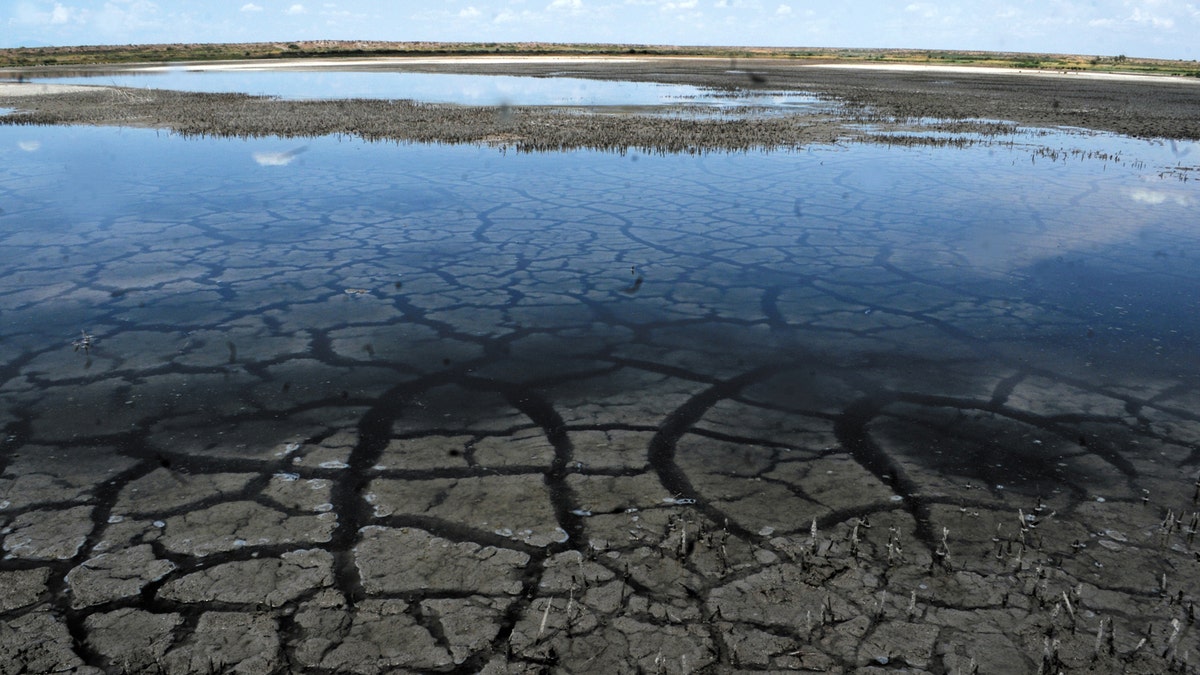
In this Aug. 25, 2011 photo, severe drought conditions in southeastern New Mexico are shown at Bitter Lake National Wildlife Refuge in Roswell, N.M. State and federal water managers and weather forecasters meet to discuss New Mexico's drought situation and whether the state will be in for another dry, windy spring. (AP Photo/Roswell Daily Record, Mark Wilson) (AP2011)
Most people view immigration, education and jobs as the Latino electorate’s key issues.
Environmentalists want to add climate change to the list.
“It’s a no-brainer for the Latino community,” said Adrianna Quintero of the National Resources Defense Council Thursday at a teleconference including Latino advocates, climate change activists and an environmental scientist.
Recent scientific research backs her up.
A 2010 study by Yale and George Mason universities found 66 percent of Latinos considered climate change a “high” or “very high” priority for the president and Congress to address, compared to 48 percent of non-Latino whites.
“Hispanics, African Americans and people of other races and ethnicities were often the strongest supporters of climate and energy policies and were also more likely to support these policies even if they incurred greater costs,” the study said.
Latinos viewed several forms of environmental damage, including air pollution and toxic waste, as a more pressing issue than whites did.
Opinion among Latinos and whites diverged most sharply over damage to the earth’s ozone layer, with 73 percent of Latinos saying the issue should be treated as a high priority, compared to 51 percent of white non-Latinos.
“There were some pretty stark differences,” said Anthony Leiserowitz, an author of the study, adding that subsequent research that has yet to be published revealed a similar pattern. “We want to continue doing research with this particular community, because the differences are so striking.”
Political differences may help to explain why Latinos are more receptive to addressing climate change than whites.
“Within the white community, there is this very strong, almost radical perspective,” that rejects the connection between climate change and human activity, Leiserowitz said.
Other explanations offered at the teleconference revolved around the dynamics of the Latino community.
Quintero said Latinos are less likely to question climate change because they have more contact with countries in Latin America that lie closer to the equator, where the repercussions are more evident.
“The reason that Latinos believe and see the reality of climate change is because they live it,” Quintero said. “These impacts are very real and they’re costing lives and they're costing jobs.”
Man Arrested for Stealing Ice From Glacier
Roberto Lovato, co-founder of the Latino advocacy organization Presente.org, echoed the sentiment, pointing out that more U.S. Latinos live in rural areas than non-Latino whites.
“The poor, immigrant and agricultural workforce is more close to the land,” Lovato said.
Not all Latinos agree, however. Lovato says he’s discouraged by the rise of Latino leaders such as Senator Marco Rubio (R-FL) and New Mexico Gov. Susana Martinez, both of whom have questioned whether humans actions cause climate change.
Some, including Rubio and Martinez, have questioned whether there is enough scientific evidence to prove global warming.
"The climate is always changing. The climate is never static," Rubio has said. "The question is whether it's caused by man-made activity and whether it justifies economically destructive government regulation."
Juan Reynosa of the New Mexico-based Southwest Organizing Project singled out Gov. Martinez, saying she did not represent the attitudes of New Mexican farmers and ranchers who view environmentalism as a deeply rooted cultural tradition rather than a newly founded political movement.
Mexico's Drought Hurting Marijuana Growers
“We have that view of the natural world and that’s why we hold it so sacred,” Reynosa said, noting that some of the New Mexican Hispanics who received land grants have worked them for 200 years.
“It’s always been a livelihood issue for us,” Reynosa said. “Our voices are starting to become a greater part of the conversation.”
Follow us on twitter.com/foxnewslatino
Like us at facebook.com/foxnewslatino







































